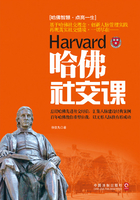"Whenever Vendramin chooses, for three Austrian lire, he can be a Venetian Captain, he can sail in the galleys of the Republic, and conquer the gilded domes of Constantinople. Then he can lounge on the divans in the Seraglio among the Sultan's wives, while the Grand Signor himself is the slave of the Venetian conqueror. He returns to restore his palazzo with the spoils of the Ottoman Empire. He can quit the women of the East for the doubly masked intrigues of his beloved Venetians, and fancy that he dreads the jealousy which has ceased to exist.
"For three zwanziger he can transport himself into the Council of Ten, can wield there terrible power, and leave the Doges' Palace to sleep under the watch of a pair of flashing eyes, or to climb a balcony from which a fair hand has hung a silken ladder. He can love a woman to whom opium lends such poetic grace as we women of flesh and blood could never show.
"Presently he turns over, and he is face to face with the dreadful frown of the senator, who holds a dagger. He hears the blade plunged into his mistress' heart. She dies smiling on him; for she has saved him.
"And she is a happy woman!" added the Duchess, looking at Emilio.
"He escapes and flies to command the Dalmatians, to conquer the Illyrian coast for his beloved Venice. His glory wins him forgiveness, and he enjoys a life of domestic happiness,--a home, a winter evening, a young wife and charming children, who pray to San Marco under the care of an old nurse. Yes, for three francs' worth of opium he furnishes our empty arsenal, he watches convoys of merchandise coming in, going to the four quarters of the world. The forces of modern industry no longer reign in London, but in his own Venice, where the hanging gardens of Semiramis, the Temple of Jerusalem, the marvels of Rome, live once more. He adds to the glories of the middle ages by the labors of steam, by new masterpieces of art under the protection of Venice, who protected it of old. Monuments and nations crowd into his little brain; there is room for them all. Empires and cities and revolutions come and vanish in the course of a few hours, while Venice alone expands and lives; for the Venice of his dreams is the empress of the seas. She has two millions of inhabitants, the sceptre of Italy, the mastery of the Mediterranean and the Indies!"
"What an opera is the brain of man! What an unfathomed abyss!--even to those who, like Gall, have mapped it out," cried the physician.
"Dear Duchess," said Vendramin, "do not omit the last service that my elixir will do me. After hearing ravishing voices and imbibing music through every pore, after experiencing the keenest pleasures and the fiercest delights of Mahomet's paradise, I see none but the most terrible images. I have visions of my beloved Venice full of children's faces, distorted, like those of the dying; of women covered with dreadful wounds, torn and wailing; of men mangled and crushed by the copper sides of crashing vessels. I begin to see Venice as she is, shrouded in crape, stripped, robbed, destitute. Pale phantoms wander through her streets!
"Already the Austrian soldiers are grinning over me, already my visionary life is drifting into real life; whereas six months ago real life was the bad dream, and the life of opium held love and bliss, important affairs and political interests. Alas! To my grief, I see the dawn over my tomb, where truth and falsehood mingle in a dubious light, which is neither day nor darkness, but partakes of both."
"So you see that in this head there is too much patriotism," said the Prince, laying his hand on the thick black curls that fell on Vendramin's brow.
"Oh, if he loves us he will give up his dreadful opium!" said Massimilla.
"I will cure your friend," said the Frenchman.
"Achieve that, and we shall love you," said the Duchess. "But if on your return to France you do not calumniate us, we shall love you even better. The hapless Italians are too much crushed by foreign dominion to be fairly judged--for we have known yours," she added, with a smile.
"It was more generous than Austria's," said the physician, eagerly.
"Austria squeezes and gives us nothing back, and you squeeze to enlarge and beautify our towns; you stimulated us by giving us an army. You thought you could keep Italy, and they expect to lose it--there lies the difference.
"The Austrians provide us with a sort of ease that is as stultifying and heavy as themselves, while you overwhelmed us by your devouring energy. But whether we die of tonics or of narcotics, what does it matter? It is death all the same, Monsieur le docteur."
"Unhappy Italy! In my eyes she is like a beautiful woman whom France ought to protect by making her his mistress," exclaimed the Frenchman.
"But you could not love us as we wish to be loved," said the Duchess, smiling. "We want to be free. But the liberty I crave is not your ignoble and middle-class liberalism, which would kill all art. I ask," said she, in a tone that thrilled through the box,--"that is to say, I would ask,--that each Italian republic should be resuscitated, with its nobles, its citizens, its special privileges for each caste. I would have the old aristocratic republics once more with their intestine warfare and rivalry that gave birth to the noblest works of art, that created politics, that raised up the great princely houses.
By extending the action of one government over a vast expanse of country it is frittered down. The Italian republics were the glory of Europe in the middle ages. Why has Italy succumbed when the Swiss, who were her porters, have triumphed?"
"The Swiss republics," said the doctor, "were worthy housewives, busy with their own little concerns, and neither having any cause for envying another. Your republics were haughty queens, preferring to sell themselves rather than bow to a neighbor; they fell too low ever to rise again. The Guelphs are triumphant."















